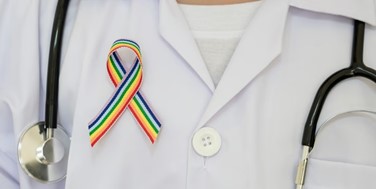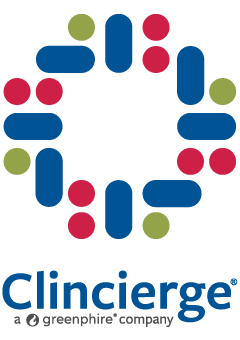June is recognized as Pride Month, started in 1999 as an annual celebration for members of the Lesbian, Gay, Bisexual, Transgender, and Queer (LGBTQ+) communities and their allies. Major cities around the world celebrate Pride Month each year with parades, rallies, festivals, and community events.
The month-long observance is a way to honor those who participated in the Stonewall Riots in June of 1969. These demonstrations took place over a week as a result of a violent police raid on the Stonewall Inn in Greenwich Village, New York, on June 28. Many consider these riots to be one of the significant turning points in the gay liberation movement.
Changes Brought About by the Stonewall Riots
Before this uprising, society viewed LGBTQ+ individuals as criminals, and ordinary events like gathering at local bars were deemed illegal. Since the riots, legislation has undergone multiple changes, and those identifying as LGBTQ continue to work toward greater acceptance and equality.
But how does this increased social acceptance play into clinical trial participation for members of the LGBTQ+ communities?

A group marches for equality during the Stonewall Riots in June 1969
Challenges Facing the LGBTQ+ Community in Clinical Trial Participation
While acceptance and equality levels continue to rise for LGBTQ+ populations, its members face several unique challenges when deciding to participate in a clinical study.
Fear of discrimination by healthcare staff
Traditionally, those who identify as LGBTQ+ have faced discrimination by doctors, nurses, researchers, and other members of the medical profession. They have been dismissive or hostile toward LGBTQ+ patients, with some staff unwilling to treat LGBTQ+ and transgender populations.
Limited access to care
Many healthcare providers have limited experience treating members of the LGBTQ+ community. They often do not have access to the unique emotional and medical support resources needed by those identifying as LGBTQ+.
Why it is Crucial to Increase Access to Clinical Trials for Members of the LGBTQ+ Population
Currently, over 7% of adults in the United States (US) identify as LGBTQ+. However, this figure jumps to almost 20% in the youngest group surveyed. With a feeling of greater acceptance into US society and a lower fear of discrimination and retaliation comes a greater willingness to share one’s identification as LGBTQ+. This generational change signifies the ideal time to implement this societal change into clinical trial design.
Ways to Increase LGBTQ+ Participation in Clinical Trials
In order to increase access to study participation for members of the LGBTQ+ population, clinical trial industry stakeholders must work together to implement changes.
Healthcare Providers as Medical Allies
Furthermore, is imperative for members of the healthcare community to show acceptance of the LGBTQ+ population and a willingness to understand their unique needs.
- Doctors should add non-discrimination statements to their paperwork and office signage and increase their knowledge base around these communities by attending training sessions focused on LGBTQ+ concerns in healthcare.
- New categories should be added to all paperwork where LGBTQ+ members can clearly state how they identify. This personal identification will assist the medical staff with interactions regarding medical and anatomical discussions.
- Pronoun and name preferences should be asked for and adhered to throughout the patient’s course of care.
- In some cases, transgender individuals do not want to be addressed by their previous or “dead” name. Although older medical documents will continue to include this information, it is important to understand each patient’s preference and respect this preference.
- Gender-neutral bathrooms are often preferred by members of the LGBTQ+ community and should be offered as an option in doctor’s offices, hospitals, and clinical sites.
- Clinical researchers should continue to investigate how their treatment will react to individuals who have used hormone treatments in the past. This increased understanding will serve to build trust with those in the LGTBTQ+ population.
Clinical Trial Sponsors and Clinical Research Organizations (CROs) as Partners
Clinical trial sponsors and CROs are often tasked with increasing diversity, equity, and inclusion (DEI) within their clinical trials. In order to do this, they must first understand the unique needs of each demographic group, including those under the LGBTQ+ umbrella.
One such CRO, Parexel International, recently published an article entitled Inclusion for all: Expanding trial accessibility for transgender and nonbinary patients. The article cites an estimated 2.6M Americans who currently identify as nonbinary or transgender. Clinical trial participation by members of these groups, however, is categorically low and not representative of this population. Many LGBTQ+ members cite health inequities, distrust of the medical community, and fear that the risks of participating would outweigh its benefits.

Patient Concierge Service Companies Offer Additional Support
Additionally, when a patient is deciding on their participation in a clinical trial, they must first overcome the many perceived and actual emotional, financial, and logistical burdens of study participation. As we’ve learned, members of the LGBTQ+ population have their own unique set of challenges.
By partnering with a patient concierge service company, a pharmaceutical sponsor or CRO can remove many of these barriers to participation. A clinical trial participant and their caregiver are paired one-on-one with a coordinator at the time of study enrollment, who will remain with the patient throughout the entirety of the study. This person lives in their time zone, speaks their native language, and understands the cultural nuances of their country. The coordinator can be reached by personal telephone and is always available to assist with air and rail ticketing, ground transportation, hotel or long-term home accommodations, meal and incidental reimbursements, and so much more. The coordinator becomes a trusted ally for the patient throughout the length of the trial, ensuring a positive patient experience and study completionAddiiton
Supplemental Resources
A recent video created by Patients as Partners in Clinical Research entitled Barriers the LGBTQ+ Community Faces in Accessing Clinical Research offers additional insight into barriers to LGBTQ+ participation in clinical trials.


